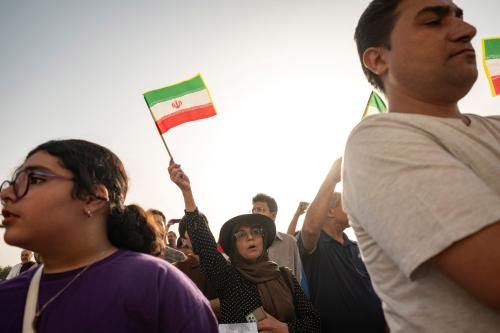Next week, the Arab League will hold its annual summit in Baghdad. It is a day a great many Iraqis have long awaited. For years, Iraqis hoped to host the Arab League in their liberated capital as a sign to the world that Iraq was back—that it had reemerged from Saddam Hussein’s tyranny and a brutal civil war as a new Iraq, stronger, freer, and better than it had been. And for years, the other Arab states denied it. They cited the violence, ethno-sectarian divisions, unsettled politics and the American occupation. Now, finally, Baghdad will get its due.
For Prime Minister Nuri al-Maliki it is a great triumph, a tremendous opportunity and a grave threat all rolled into one.
Although many Iraqis long for this sign of reacceptance into the Arab world, it is especially important for Maliki that he be able to say that he fulfilled the dream. Maliki, of course, is a Shia—and not just a Shia but also a member of a Shiite Islamist party who has been personally disdained and excoriated by the Sunni Arab world for most of his time in office. Indeed, for many years, most of the other Arab states refused to resume normal relations with Iraq explicitly because he was its prime minister. Thus, for Maliki, the Arab League’s willingness to come to Iraq under his premiership is an immense personal victory, a signal to the Iraqi people that he, personally, has been accepted by the other (Sunni) Arab heads of state as the rightful and respected leader of Iraq.
As a result, it is all the more imperative for him that the summit go well, both for Iraq and for him personally. If it goes well, not only will he buttress his sagging popularity with the Iraqi street, he also will likely be able to parlay it into improved trade relations with the rest of the region, more direct foreign investment from the wealthy Gulf states and greater Arab diplomatic support for Iraq’s international causes—particularly the lifting of the last UN sanctions under which Iraq has labored since the days of Saddam. If Maliki is truly accepted by the other members of the Arab League, it could mean significant material benefits for Iraq that would further reinforce his popularity and power.
The Brookings Institution is committed to quality, independence, and impact.
We are supported by a diverse array of funders. In line with our values and policies, each Brookings publication represents the sole views of its author(s).



Commentary
Op-edMaliki’s Dangerous Tightrope Act
March 23, 2012